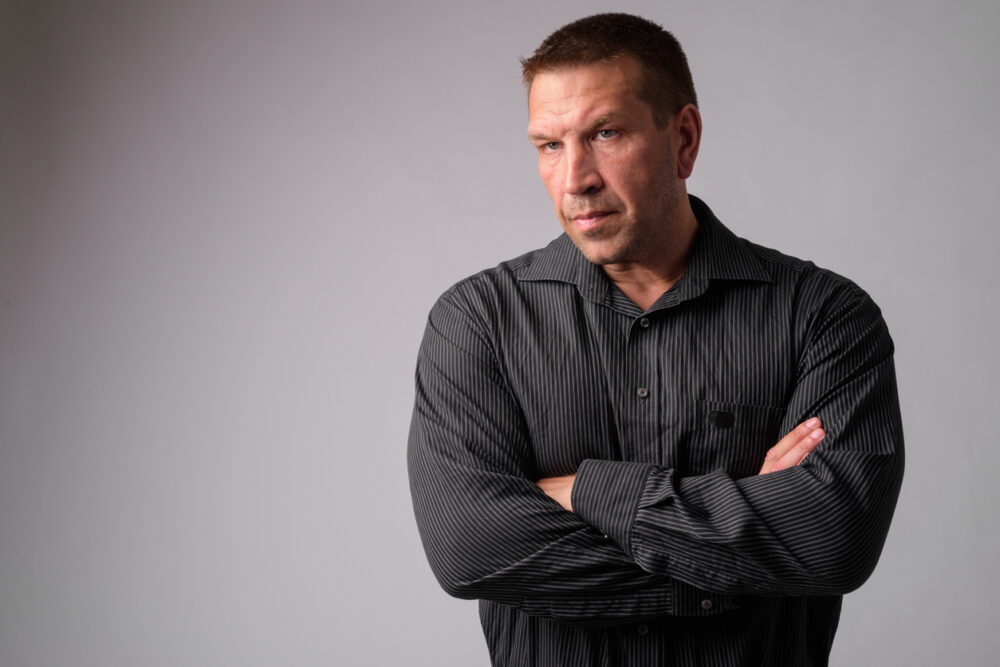When men try to grow, the world often pulls them back with old labels.

Every guy’s heard it—“Man up,” “Boys don’t cry,” or “Real men don’t do that.” These aren’t just outdated slogans; they’re heavy expectations society keeps dropping on men’s shoulders. Even in a world that claims to champion emotional intelligence, gender equality, and individuality, certain stereotypes about masculinity remain stubbornly glued in place. Women challenge gender norms all the time—and often get praised for doing so. But when men do the same, the reaction is usually confusion, judgment, or outright ridicule.
The truth is, we’ve made progress in how we talk about gender, but men still get boxed in by a narrow image of what “manly” should look like. These old-school ideas creep into relationships, jobs, parenting, and even fashion. And while women have been encouraged to break the mold, men often get shamed for doing the same. These nine stereotypes aren’t just unfair—they’re exhausting, and they quietly shape how men show up in the world. Maybe it’s time to call them out and let them go.
1. Real men don’t show emotion.

The idea that men should be stoic at all times is drilled in early. Boys are told to stop crying, to shake it off, to “be strong.” That message eventually morphs into adult men who struggle to process grief, share their feelings, or even admit they’re overwhelmed. Emotional suppression becomes a badge of honor, and vulnerability gets labeled as weakness, according to Rebecca Williams at IECC.
What this stereotype actually does is isolate men. They suffer in silence, afraid that opening up will make them seem less masculine or less capable. It affects friendships, relationships, and mental health in serious ways. Everyone talks about the importance of emotional intelligence—until a man actually uses it. Then people get uncomfortable. It’s long past time to stop punishing men for being human.
2. Men are only valuable if they provide financially.

There’s still this underlying assumption that a man’s worth is measured by the size of his paycheck. Even in modern partnerships where both people work, men are often pressured to be the “breadwinner”, as reported by Michael at MichaelSwerdloff. If they’re not, they may feel like they’ve failed in some essential way, even if they’re contributing in countless other areas.
This narrow definition of value makes it hard for men to explore different roles—like staying at home with the kids or pursuing creative work that isn’t high-paying. It turns self-worth into a financial scoreboard and discourages balance, passion, and personal fulfillment. Women are celebrated for choosing diverse paths; men should be given the same freedom without judgment or guilt.
3. Men must always be the initiators.

In dating, intimacy, and even social situations, men are expected to make the first move. They’re supposed to chase, lead, and take control—or risk being seen as timid or passive, as stated by Juan Carlos Sierra at Frontiers. That kind of pressure creates awkward dynamics and often puts men in situations they’re not emotionally ready for, just because backing off might look weak.
This also removes agency from women, suggesting that if they take initiative, something’s off. It reinforces outdated power plays instead of promoting mutual interest and shared confidence. Men shouldn’t feel like they always have to be the aggressors. Being pursued, asking for help, or expressing uncertainty doesn’t make a guy less masculine—it makes him honest.
4. Men aren’t natural caregivers.

It’s still common to hear people say women are just “better with kids” or “more nurturing by nature.” That kind of thinking sidelines dads and makes it seem like any male interest in caretaking is either rare or suspect. But fatherhood, mentoring, and emotional caregiving are not secondary talents—they’re human capacities.
Men are fully capable of being warm, involved, and nurturing. They shouldn’t be applauded just for changing a diaper or showing up at a parent-teacher meeting—it should be normal. When we dismiss men as caregivers, we rob children of meaningful relationships and deny men one of life’s most fulfilling roles. Society needs to stop acting like tenderness is strictly feminine territory.
5. Masculinity means physical dominance.

The image of the tough, muscular, aggressive man still lingers in pop culture and casual conversation. If you’re not the strongest guy in the room, you’re expected to at least act like you are. Strength gets linked with dominance, and aggression becomes a twisted stand-in for confidence. Men who are soft-spoken or physically unimposing often feel like they have to overcompensate.
This stereotype promotes toxic behavior and keeps men in a loop of comparison and performance. Physical prowess isn’t a requirement for being respected or secure. The real strength is in knowing who you are and not needing to crush others to prove it. But that message doesn’t get nearly enough airtime.
6. Men are always up for sex.

It’s assumed men are constantly ready, eager, and driven by nothing but their libido. If a man says no, he’s mocked. If he wants to wait or isn’t interested, it gets questioned—by both women and other men. This stereotype turns sexuality into a performance and strips away the idea that men, too, have boundaries, emotions, and complex desires.
The pressure to be perpetually “on” leads to guilt, confusion, and even burnout. It creates a culture where consent is murky and where vulnerability in intimacy is discouraged. Men deserve the space to navigate their sexual identities without being shamed for not fitting into the oversexed caricature the world expects of them.
7. Men should never depend on anyone.

Independence is good, but glorifying total self-reliance teaches men that asking for help is embarrassing. Struggling in silence becomes the norm. They don’t go to therapy, lean on friends, or admit when things feel unmanageable. Needing others is seen as weakness, even though it’s just a normal part of being human.
This stereotype blocks growth and strains relationships. It keeps men emotionally isolated and mentally overloaded. The truth is, real strength comes from knowing when you need support and being brave enough to ask for it. We praise women for building communities and support systems—men should be encouraged to do the same without judgment.
8. Men don’t care about appearance.

It’s often assumed that only women spend time worrying about how they look. When men invest in grooming, skincare, or fashion, it’s treated like vanity or met with suspicion. This reinforces the idea that men should be rugged and unconcerned with aesthetics, while quietly expecting them to “look like a man” at all times.
But men have insecurities too. They get judged on looks, age, and style, and they often feel pressure to keep up without appearing like they care too much. It’s okay for guys to want to feel attractive or put together. Caring about your appearance doesn’t make you shallow—it just means you’re human.
9. Men must always be in control.

Control is often equated with masculinity—control of emotions, of finances, of the relationship. If a man isn’t steering the ship, he’s seen as passive or weak. This stereotype discourages collaboration and puts unnecessary weight on men to always have a plan, an answer, or a solution, even when they’re running on empty.
No one thrives under that kind of pressure. Healthy relationships involve shared decision-making and emotional give-and-take. When men feel like they have to lead at all times, they miss out on the ease and relief that comes with real partnership. Giving up control doesn’t mean losing power—it means making space for balance.
